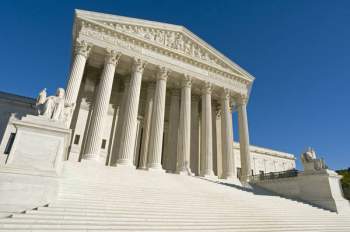
What Are The Rights and Obligations of United States

Popular In Constitution
Purpose Of Lifetime Appointment And Pros And Cons Enumerated Powers Bicameral Legislature Background Article 3 Of The Constitution We The People 1st Amendment Who Wrote The Constitution Judicial Review Equal Protection Clause 5th Amendment 10th Amendment Three Fifths Compromise
The last section of Article 4 of the Constitution is that of the "Obligations of the United States". Two clauses reside within this section, the first being that of the "republican government". Under this clause, the United States sets forth that every State included within the Union practice that of a republican system of government. This clause has been called the "guarantee clause," as well.
Though the Constitution itself does not present us with an adequate explanation of this clause, we may look no further than that of the Federalist Papers, where we are met with the initial beliefs and intentions of this country's Founding Fathers. Within these papers, a distinction exists in relation to that of a realistic republican system of government. It describes it in terms of its distinction from general democracy, from which it was believed that the founders wished to steer away.
In the time period amid the 1840s, the "Dorr
Rebellion" made the Supreme Court's ruling as to the clause's
meaning of the utmost necessity. This Rebellion,
directed by Thomas Wilson Dorr, stemmed from his anger in relation to
modifications within the electoral system of the State of
Rhode Island. As many of those involved were arrested due to their attempts at
instituting new State Constitutions,
a Federal
suit was filed that
claimed that such arrests were illegal due to Rhode Island's State Government’s existence
as opposite to that of "republican" in nature.
In the Supreme Court case Luther v. Borden, it was ruled that only the Congress of the United States of America be allowed to determine what type of government a State maintained. Due to such a significant proceeding, the United States Congress was forced to set forth specifications by which the "republican nature" of a State's government may be decided.
NEXT: Article 5 of the Constitution




















